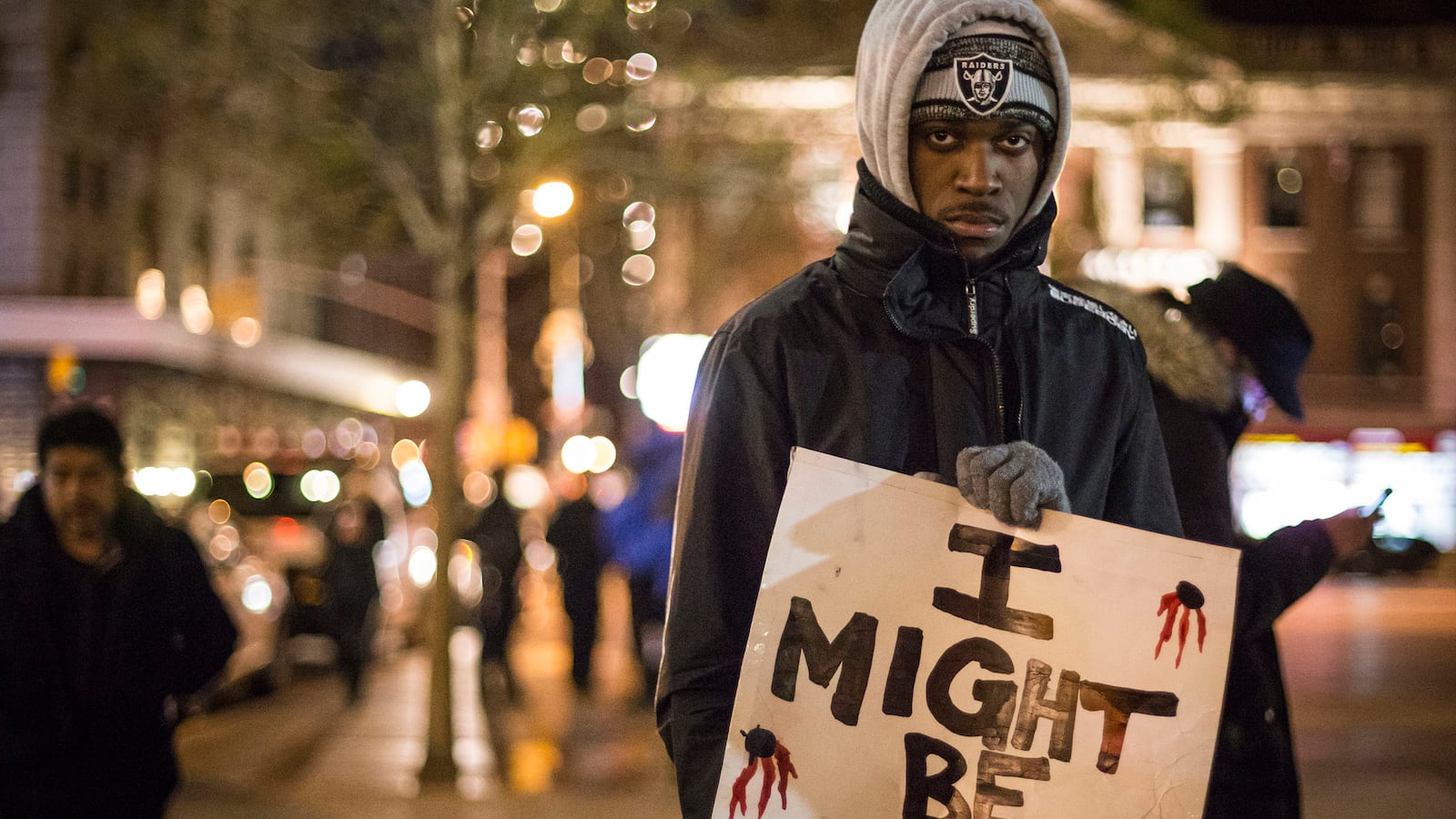Fox News anchor Bill O’Reilly often argues, as he did on his show Monday night, that black America is its own problem. Peddling a bevy of selective and well-worn statistics, he pointed to violent crimes rates in urban communities to explain why grand juries so often refuse to indict police officers. Fueled, according to O’Reilly, by a proliferation of pathologies— including single-parent homes and high school drop rates—if poor and minority communities are crumbling, it is their own damned fault. Further, if we cannot find justice in a system designed to protect and serve, it is because we have proven ourselves—in his eyes— undeserving. Grand juries tend to give police officers the benefit of the doubt because, as a people, he says we African Americans give them much to doubt.
It’s difficult to know where to begin, but to believe him—as far too many do— means to believe in the inherent criminality of black people, and that white Americans are disproportionately more moral. One would have to believe that generations of housing, education, and employment discrimination ended with a single stroke of a president’s pen back in 1965 and that those imperfections in our Union had no lasting legacy. One would have to believe that we created concentrated pockets of poverty and that we constructed (or destroyed) our own quality of life, by foregoing marriage and refusing education in favor of out-of-wedlock births and welfare dependency.
O’Reilly is right about one thing: grand juries, and moreover our entire justice system, are skewed against people of color. As a society, and even within the black community, we draw conclusions about the death of a victim based on what we believe about the lives they lived—as if some people deserve more justice than others. This was never truer than in the cases involving Michael Brown and Eric Garner. There was never, as I suggested, a chance that either prosecuting attorney would secure an indictment against the officers involved—not because of what anyone believed or did not believe happened, but because of who we believed the victims were. Appointing a special prosecutor, an appealing idea for many, may not have changed the outcomes.
I have long said that the rigorous nature of criminal investigations and prosecutions, the rate of conviction in murder cases, the resulting prison sentence and even news coverage are often predicated on one central question: Did they deserve to die?
Did they live their lives in a matter befitting of our standards? Were they innocent victims or did they conduct themselves in a manner that would naturally lead to their demise?
We make those judgments not in a fact-based vacuum as we would like to believe, but also based on our personal biases that result from socialization—the cultural lens through which each of us sees the world. The unfortunate reality is that race, gender, and economic status do matter when justice is meted out. It matters how “human” a jury sees the victim as. For the broader public, it matters that we have become desensitized to the loss of some lives and value them less than others. Prosecutors are not immune to that imbalance. It should also be said that sharing the same race with a victim does not always equate to an ability to see beyond what society has already told us about them.
There is no perfect juror, just as there is no such thing as a perfect witness. And there is no perfect victim. “Injustice is injustice, no matter who it touches,” I told Essence Magazine recently. That holds true no matter who they were or how they lived before that moment.
To be clear, there are myriad maladies to be solved in distressed communities, and truthfully, some of those problems will be ours to correct, if we are to indeed break the cycle. It is dishonest, however, to believe that the broader society was not complicit in their creation and has no obligation to tear down the strictures born of racial animus and intolerance. For his part, it appears that O’Reilly and others like him are invested in and suffer from what I have come to call the “damning bigotry of criminal expectations.” Unfortunately, the roads to justice in this country are paved with many of the same bricks.
In her 1976 keynote speech before the Democrat National Convention, Congresswoman Barbara Jordan grappled with what she deemed “the quandary of our present.” In a booming voice that thundered over the audience, Jordan cautioned us about the calamity that ensues when “self-interest and bitterness seem to prevail.” That historic address, delivered on a sweltering summer night at Madison Square Garden in New York, was nothing short of a call to our “common destiny.”
Thirty-seven years later, that destiny remains largely unattained. Mired in ideological warfare, America faces her most formidable opponent yet— herself. It seems that we are so mesmerized by the roar of our own voices, transfixed by the fantasy of rugged individualism, that we are blinded to meaningful solutions to the critical issues that confront us.






